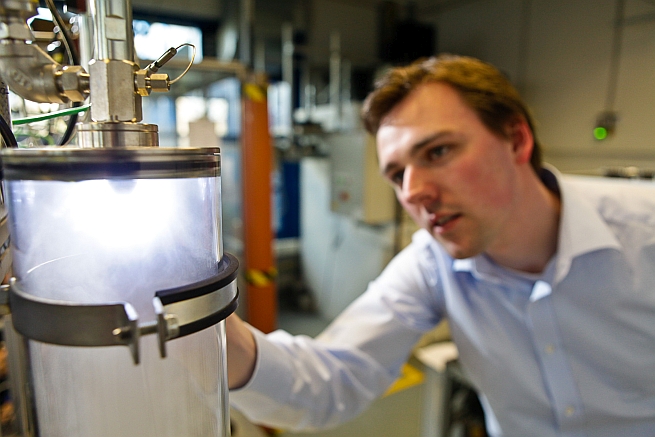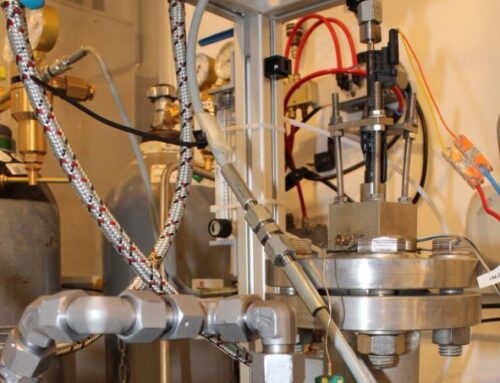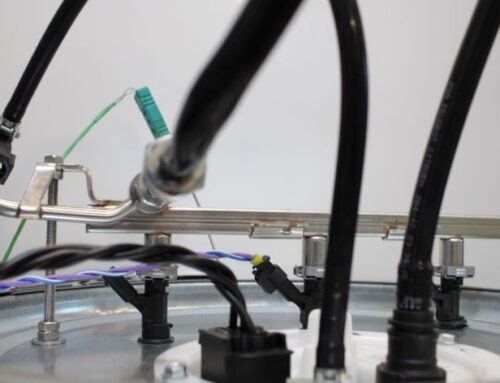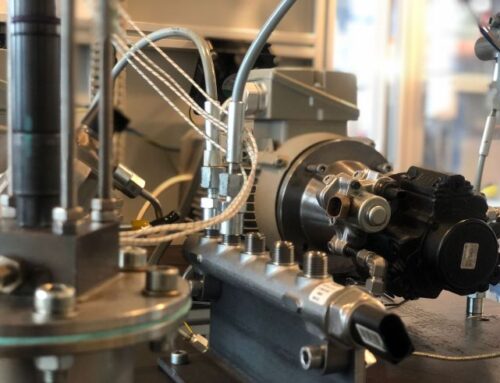30 November 2018 –
Research and Innovation project REDIFUEL
To achieve the European Union’s climate protection targets, greenhouse gas emissions must be cut down to 80% compared to 1990 levels by 2050, while in road transport, this will require 60% reduction in emissions. Nowadays road transport is still almost entirely based on conventional fuels and internal combustion engines. One pathway could be to gradually replace fossil fuels, on one hand by introducing electric mobility to cover short distances and on the other hand by introducing low-CO2 2nd generation liquid bio-based fuels to the market to ensure mobility over long distances. Moreover, the biomass used to produce this 2nd generation fuel must not compete with either food production or the areas under cultivation. The research work to open the envisaged pathway for the production and market introduction of such biofuels is a decisive step forward and is the core focus of the EU H2020 project “REDIFUEL” that has recently been launched.
 The overall objective of REDIFUEL is to enable sustainable and cost-competitive production of renewable EN590 diesel biofuel (drop-in capable) from various biomass feedstocks. This requires the development of new technologies and processes. One focus is the development of a compact and highly efficient Fischer-Tropsch process for the conversion of biogenic synthesis gas into a liquid raw product. Another core topic is to develop an efficient hydroformylation process for further processing of this raw product into a high-quality liquid fuel. For this production process from synthesis gas to diesel-compatible, EN 590 standard-compliant biofuel, a design for the construction of a small and a medium-sized production plant is to be developed.
The overall objective of REDIFUEL is to enable sustainable and cost-competitive production of renewable EN590 diesel biofuel (drop-in capable) from various biomass feedstocks. This requires the development of new technologies and processes. One focus is the development of a compact and highly efficient Fischer-Tropsch process for the conversion of biogenic synthesis gas into a liquid raw product. Another core topic is to develop an efficient hydroformylation process for further processing of this raw product into a high-quality liquid fuel. For this production process from synthesis gas to diesel-compatible, EN 590 standard-compliant biofuel, a design for the construction of a small and a medium-sized production plant is to be developed.
The target fuel production costs are at the level of 0.90 – 1.00 € per liter (depending on the biomass source) and thus competitive with conventional fuels. Apart from high energy density, the fuel is also to be characterised by particularly advantageous low emission values. The environmental and social aspects of the developed technologies will be assessed in a comprehensive Biomass-to-Wheel performance analysis.
The REDIFUEL research project is based on close cooperation of 12 international partners. The consortium consists of enterprises of the mineral oil industry, universities, research institutes as well as small and medium-size enterprises. For the introduction of a renewable fuel, different steps from the production to the final consumer must be examined, in which the TEC4FUELS GmbH and OWI Oel-Waerme-Institut GmbH are involved. Their tests and analysis serve to maintain the high operational safety and service life of vehicle components. These concerns, for example, the storage stability of the new fuel and its blends with conventional diesel fuels, its possible interactions with fuel-carrying components and their materials in vehicles as well as possible interactions of the fuel with the engine oil.
 This project has received funding from the European Union’s Horizon 2020 research and innovation programme under Grant Agreement no. 817612.
This project has received funding from the European Union’s Horizon 2020 research and innovation programme under Grant Agreement no. 817612.
Download press release
Development of a high-quality low-CO2 fuel – Research and Innovation project REDIFUEL
Visiting REDIFUEL´s homepage: https://redifuel.eu/
About the REDIFUEL consortium
The EU research project “REDIFUEL” focuses on the development of processing technologies that enables the production of renewable, EN590 compliant biofuels for the transport sector. The project consortium is composed of universities, research institutes and industries from six different countries.
- FEV Europe GmbH (DE)
- Max-Planck-Gesellschaft zur Forderung der Wissenschaften EV (DE)
- Agencia Estatal Consejo Superior de Investigaciones Cientificas (ES)
- Teknologian tutkimuskeskus VTT Oy (FI)
- Rheinisch-Westfaelische Technische Hochschule Aachen (DE)
- OWI Oel-Waerme Institut gGmbH (DE)
- Vrije Universiteit Brussel (BE)
- Neste OYJ (FI)
- MOL Hungarian Oil and Gas PLC (HU)
- INERATEC GmbH (DE)
- TEC4FUELS GmbH (DE)
- Uniresearch BV (NL)






